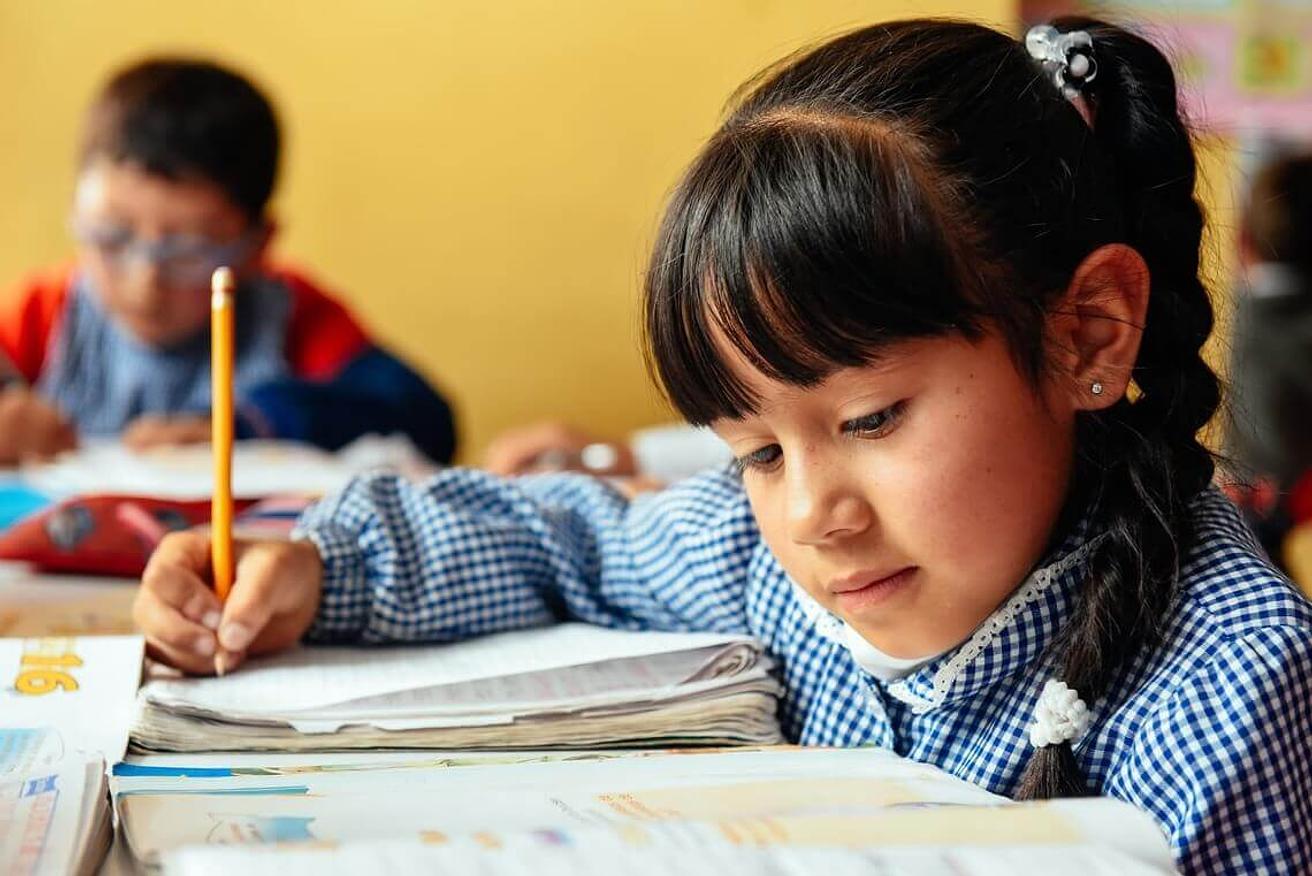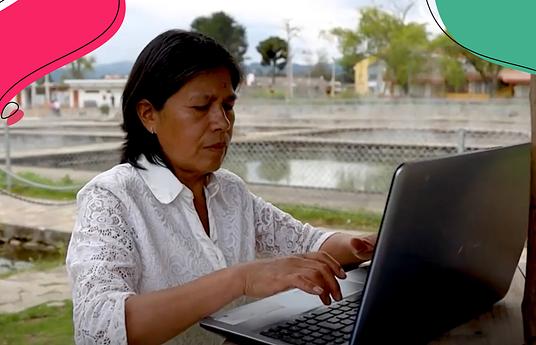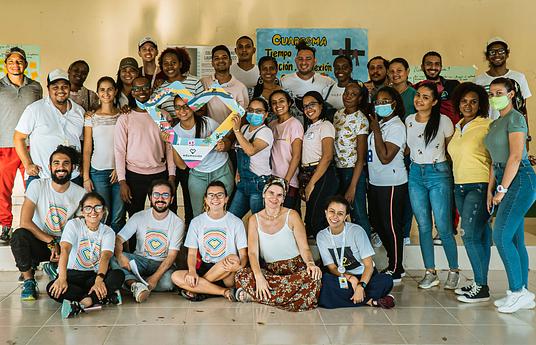This article "Siete innovaciones que buscan transformar la educación en América Latina" was originally published in Spanish.
Latin America faces a learning crisis. In addition to this, there are other challenges affecting the region, such as high dropout rates and a lack of connection between education and the needs of the labor market, as many students lack cognitive and socio-emotional skills.
Innovation is key to addressing these challenges. Innovation involves creating something new or improving something that exists to meet a need. If we talk about education, innovation can take place in several ways: by improving teaching models or incorporating technology or other relevant skills as part of the training process. It can also directly address student learning or focus on improving the skills of teachers, principals, or other actors in the educational community.
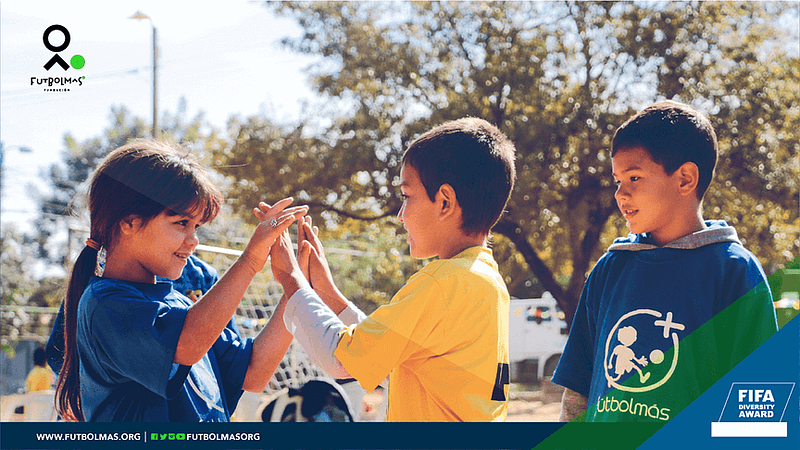
Fundación Fútbol Más uses football to teach important life lessons
This is precisely what Fútbol Más, Edumoción, Swarmob, Escuela Nueva, NVELE, Sapieduca, and Habilidades para el Futuro are doing. These are 7 innovations from the HundrED Global Collection 2024 that are addressing education challenges in Latin America and improving the way children learn.
Socio-Emotional Learning for Teachers and Students
Social and emotional learning (SEL) is essential for personal development, allowing people to cultivate empathy, resolve conflicts appropriately, and communicate and regulate their emotions.
Strengthening SEL skills becomes more necessary in vulnerable contexts. With this objective in mind, Fútbol Más was born in Chile, which uses this sport as a bonding tool to positively reinforce the following skills: respect, joy, responsibility, creativity, and teamwork. To date, more than 26,000 children have participated in Fútbol Más programs, and its work has expanded to 9 other countries in Africa, Europe, and Latin America.
"The curriculum of our programs combines socio-emotional and sports content, and can be adapted to various contexts. We use the Green Card to reward the good actions of children, focusing on their potential. This approach has allowed students participating in the program to improve, for example, their conflict resolution skills." - Fútbol Más Team
For students to be able to learn SEL skills, teachers and caregivers must also be able to strengthen themselves in these areas. Edumoción, an NGO of Colombian origin that already has a presence in 12 countries, combines technology and socio-emotional learning in a single platform. Here, teachers have access to a variety of virtual courses that they can adapt to their needs. In addition, the platform's community of practice allows teachers to form study groups, resolve questions among peers, and create psychosocial support circles.
Innovations in the Teaching Model
Some innovations seek to improve traditional teaching processes. Swarmob, also from Chile, incorporates a project-based methodology that seeks to have students actively participate in research, problem-solving, and the creation of concrete products or solutions. Through its platform, it connects students and teachers from different schools to work collaboratively on projects linked to the Sustainable Development Goals (SDGs).
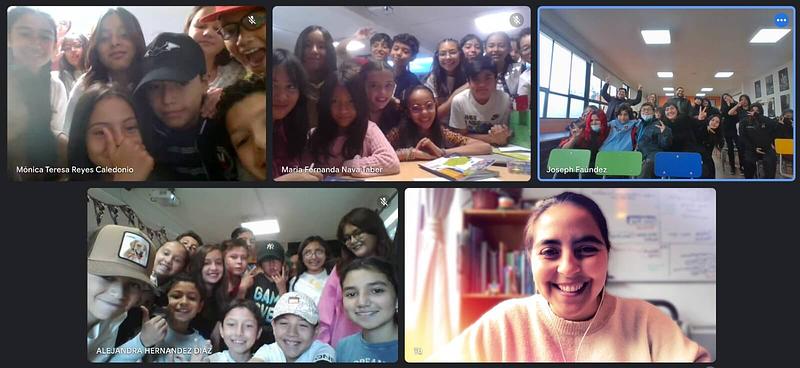
Swarmob brings students together from across the globe
On the other hand, the Escuela Nueva Foundation in Colombia has been working for more than 30 years to provide quality education to children through a pedagogical model called "Active New School". This model is based on participatory, cooperative, and personalised teaching where teachers are facilitators of dialogue in the classroom and students participate democratically in school decisions. More than 12 countries have adapted and implemented this model, incorporating it into their educational policies.
In neighbouring Venezuela, NVELE offers an accelerated education program for children and young people who have dropped out of school, giving them the opportunity to re-enter the formal education system. This program, which includes SEL skills and critical thinking, also involves teachers, families, and community leaders to achieve a multiplier effect. To date, more than 15,000 children have benefited from the program, including students from ethnic minorities and with special abilities.
Technology as a Channel for Innovation
Innovation can also arise through the incorporation of technology into the different teaching processes and models. Sapieduca-Brasil is a web platform that uses gamification to promote attention and involvement of students, making the learning process a playful and attractive activity. Teachers can adapt the tool to the needs of the class and can receive real-time information on the progress of their students. The innovation is in the process of scaling up and they expect to reach 50,000 teachers in 2025.
"I used Sapieduca to gamify the 'Redação Nota 1000' challenge promoted by our school. I was impressed by the interest of the first-grade students (...). Sapieduca's reward system, with its virtual coins and challenges, allowed me to closely monitor the progress of each student, encouraging them to continuously improve." - Sapieduca user teacher
The global pandemic put the spotlight on digital skills and the use of technology in the workplace. Habilidades para el Futuro is a program from Eidos, an Argentine organisation, that trains young people and adults in technological skills to increase their employability. With a humanised remote learning approach, the program consists of five modules that cover the basics of Excel, Power Point, Word, Teams, as well as web design, programming, LinkedIn use, and employability. Since 2021, more than 14,000 people in 15 countries have participated in the program.
Habilidades para el Futuro seeks to break down barriers and show people that the world of technology is accessible (...) and that it is not out of their reach to access a job in the digital world. Today we need more people to dare to learn and to learn throughout their lives." - Eidos Team
The challenges in education in Latin America are great, but so is the desire to overcome them. This is demonstrated by these seven innovations from HundrED's Global Collection 2024 that are working to improve pedagogical methodologies and strengthen socio-emotional and digital skills, all with the aim of improving learning and providing more opportunities for children and young people in the region.
Would you like to be part of the Global Collection 2025? Apply until May 1st! More information here.
